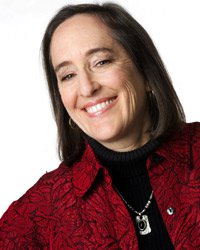Ask Ellen: Can Common Tests Assess Uncommon Kids?
Standardized assessments can’t evaluate all kinds of learners.
Your content has been saved!
Go to My Saved Content.
Dear Ellen,
Our district places increased emphasis on common assessments (meaning all questions are exactly the same) on summative exams. When we plan these tests in our high school history department meetings, it is often difficult to agree on the phrasing of a question. Though we have all covered the same content, some teachers have focused more or less heavily on some topics, while others have focused in greater detail on other issues. What best practices support creating better common assessments?
Sara
Dear Sara,
Thanks to the advent of high-stakes testing at both thestate and national levels, we see an increasing push bymany school districts to standardize their assessments,a development that has beneficial as well as troublingconsequences for students and teachers.
Common assessments can provide teachers withan understanding of what their students know, and,depending on the assessment's complexity, what thosestudents can actually do within a discipline or subjectarea. However, a troubling concern for student learningis that some districts and teachers select the commonassessment that is the lowest common denominator intesting: the multiple-choice test. This test, though easyto score, is exceedingly difficult to construct well, andin the end is by its nature a limited assessment measurethat serves a diverse student population poorly.
Teachers may learn something from multiple-choiceassessments about the kinds of specific contentknowledge students understand -- in your case,history -- but you will learn almost nothing about theirdeep comprehension of larger concepts. History is adiscipline, and the content serves only as the raw materialfor a way of thinking. History, when taught well,encourages students to analyze historical evidence,evaluate it, and then demonstrate understanding ofthat evidence in meaningful and complex ways, somethingnot even the best multiple-choice assessment cancapture.
As a result, the challenge for your departmentis to create complex and common assessments in whichstudents actually demonstrate the discipline's authenticpractice rather than cursory knowledge of its discrete,factual pieces.
How to attend to this dilemma? For one of yourdepartment meetings, you might read and discuss thechapter "Thinking Like an Assessor" in Grant Wiggins'sand Jay McTighe's book Understanding by Design. Thisimportant work encourages us to construct curriculumalways "with the end in mind," and then to think muchdifferently about how we assess student learning. Whenyou are building a common assessment, it poses questionsto consider, such as "What would be sufficient andrevealing evidence of understanding?" and "How can Idistinguish between those who really understand andthose who don't (though they may seem to)?"
Another knotty issue in creating common, summativeassessments is attending to the diverse learningneeds of our students. How might we capture the heartof the unit in content and concepts while building assessmentsthat allow different kinds of students todemonstrate what they know and can do in ways thatspeak to their capacities?
For example, if your department teaches a unit onthe modern civil rights movement, you'll need to determinewhat matters about that movement, and why.If you've decided as a department that students are toconsider the way religion, young people, music, andfederal power coalesced in the movement to changethe law, then the challenge comes in developing severalkinds of ways students can demonstrate theirknowledge while nonetheless engaging with common"enduring understandings."
Is it possible to produce a common assessment thatincludes three or four options -- an essay, a take-homemuseum project, an exploration of historical documentsand response -- but still requires that students demonstratein their responses the key knowledge and skillsexpected of them? And does the option-loaded assessmentexpect that each student explore how and whythe modern civil rights movement mattered to America,and how it still does?
Creating common assessments that honor thecontent and nature of our discipline while keenly andclearly assessing what students know and can do iscomplex, important, and challenging work. By workingcollaboratively with your colleagues and startingalways with Steven Covey's "end in mind," we're likelyto produce assessments that are meaningful to bothstudents and their teachers.